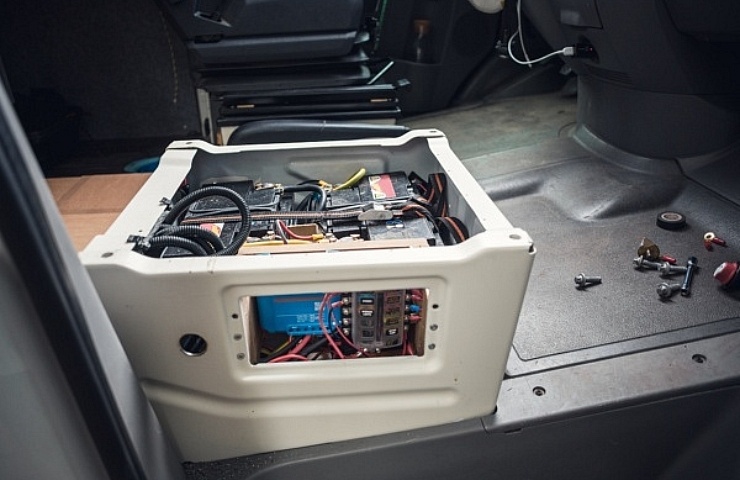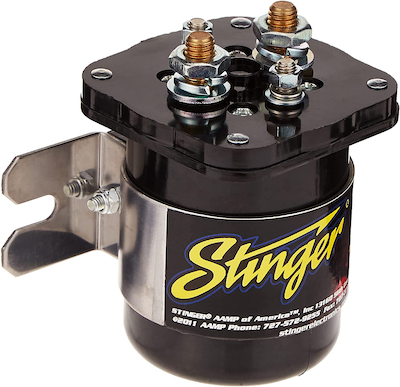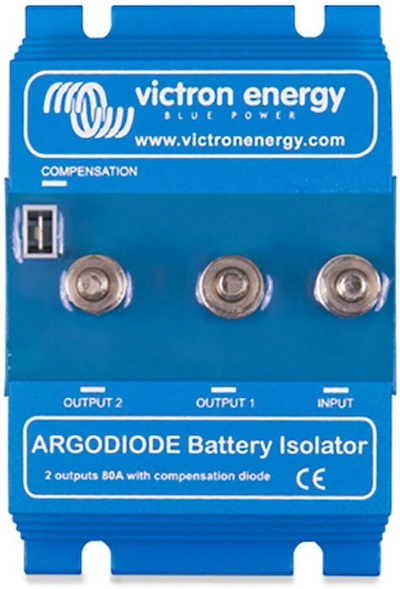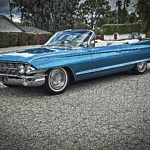Contents
Do You Need a Battery Isolator?
A battery isolator is an integral part of a charging circuit for any vehicle fitted with multiple batteries, such as heavy-duty trucks and recreational vehicles (RVs). These vehicles often have a separate battery to handle additional electrical loads. For example, a truck or SUV built for hardcore offroading and overlanding might have a secondary battery to power an electric winch and auxiliary lighting.
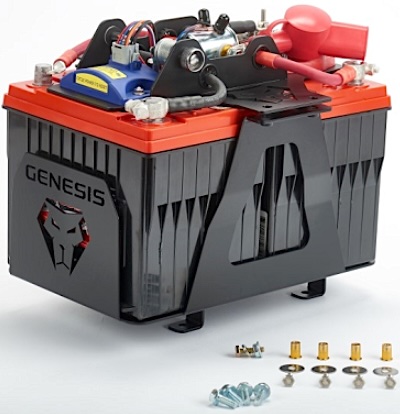
Genesis Offroad Dual Battery Kit 200A Isolator / Monitor for 2007-2020 Toyota Tundra
A battery isolator wired into a vehicle’s electrical circuit ensures that current only flows in one direction so the vehicle’s alternator charges both batteries simultaneously. If one of those batteries is weak or dead, the isolator ensures the other battery doesn’t drain.
If you don’t have access to roadside assistance, that second battery could also jump-start the primary battery. An RV often has a secondary battery to help power the household accessories vital to living on the road. The secondary battery in an RV or overlanding vehicle is called a “house” battery since it powers the lights and other parts of the living space.
These vehicles need the extra power from a second battery. Not having that power when you need it can be inconvenient or dangerous. A drained battery can start to drain a fully charged battery, sometimes to the point where you can’t start the vehicle.
That’s where the battery isolator comes in handy. The device helps ensure that both batteries in a vehicle maintain a full charge. It disconnects the secondary battery from the circuit between the primary and starter batteries. The isolated house battery can keep a full charge for use by an RV for the night. Your primary battery hasn’t discharged in the morning so that you can start your engine.
Shop now for battery isolatorsChoosing and Installing a Battery Isolator
Every vehicle that uses multiple batteries is different, depending on the manufacturer and how it’s used. It’s highly advisable to get advice from others who have worked on the same type of car or truck before buying and installing secondary batteries and a battery isolator.
Miswiring the battery isolator could damage the vehicle alternator and engine control units. Consult the factory service manual for wiring diagrams, and check with popular internet forums. Chances are good that someone else has completed similar work.
Shop now for car audio battery isolatorsTypes Of Battery Isolators
Several types of battery isolators are available, depending on the desired uses for a dual-battery vehicle. They can be simple or complex based on the vehicle’s electrical systems.
Manual Battery Isolator – $50 and $150
These are the most basic and simplistic isolators available. They only engage a secondary battery when the operator turns a knob or flips a switch. These allow you to use the house battery to jump-start the main engine battery.
The major downside to a manual unit is that forgetting to turn off the house battery can deplete it.
Shop now for manual battery isolatorsRelay Battery Isolator – $100 to $300
A relay battery isolator automatically connects and disconnects the house battery from the primary starting battery based on the state of charge. If the engine isn’t running, the relay keeps the house battery from depleting the engine battery. However, these relays are basic electromechanical switches, so they activate based on how much voltage is coming from the alternator.
Older vehicles produce a steady 14 volts of power, give or take. These relays can react accordingly. Modern cars, with more intense electrical loads, often have alternators that vary outputs between 12 and 15 volts. A relay won’t work well on these vehicles.
Shop now for relay battery isolatorsDiode Battery Isolator – $150 to $400
Diode battery isolators are ideal for vehicles with more than two batteries. A diode is an electrical device that allows current to flow only in one direction. So, if a bank of batteries is wired in series, the diode isolator keeps one weak battery from draining the others.
A diode unit is helpful to allow the charging source—the alternator, a power outlet in an RV park, or a solar panel—to charge the batteries while keeping that power from feeding other batteries that might be failing.
Shop now for diode battery isolators
